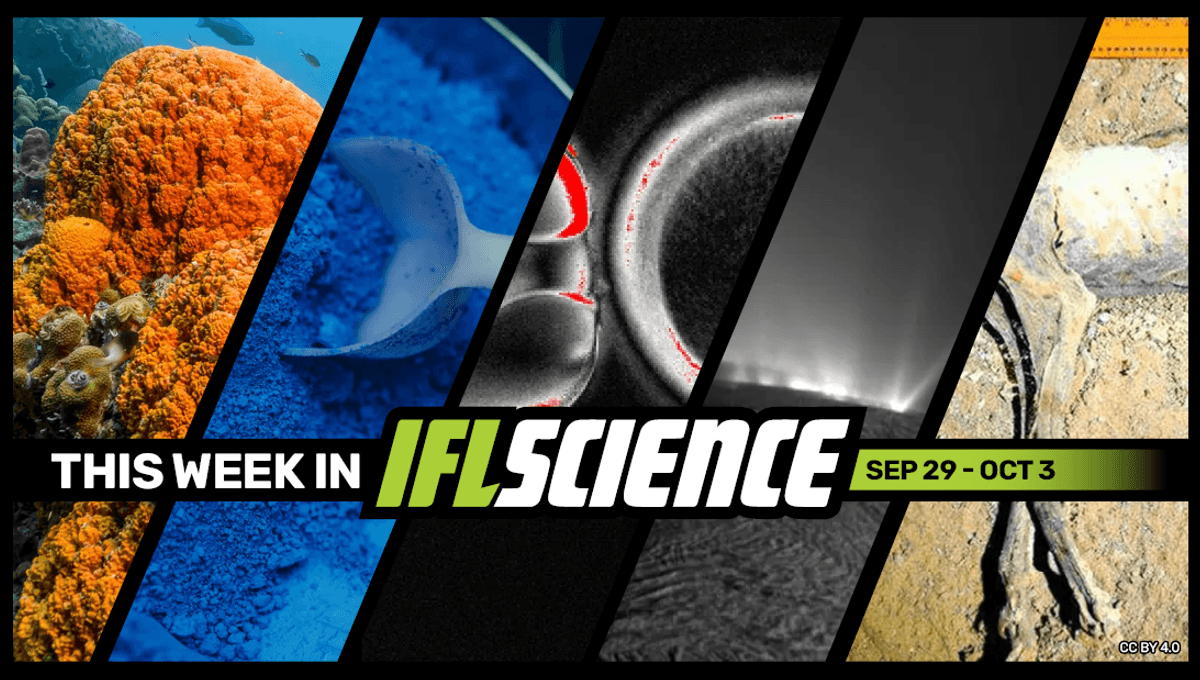-
Ροή Δημοσιεύσεων
- ΑΝΑΚΆΛΥΨΕ
-
Σελίδες
-
Blogs
-
Forum
These May Be The First Animals To Evolve On Planet Earth, Skin Cells Have Been Used To Create Fertilizable Eggs, And Much More This Week

These May Be The First Animals To Evolve On Planet Earth, Skin Cells Have Been Used To Create Fertilizable Eggs, And Much More This Week
This week, a 13,000-year-old discovery is one of the earliest uses of blue pigment, Enceladus’s oceans may have every ingredient necessary to form life, and these 4,000-year-old mummified cheetahs are the first naturally mummified big cats ever found. Finally, Dr Jane Goodall, famed primatologist, passes away aged 91 – we explore what made her one of the most important scientists of the 20th century.
The rest of this article is behind a paywall. Please sign in or subscribe to access the full content. Animal life is a recent addition to Earth, relatively speaking. The planet formed about 4.5 billion years ago, with microbial life likely emerging between 4.3 and 3.7 billion years ago. It was not until several billion years later that animals started to rock up in a humble and vaguely familiar form: sponges. Read the full story here When archaeologists brushed away the dirt from a prehistoric artifact in Germany, they were startled to see a shimmer of extremely rare color. Clinging to the stone’s surface were flecks of deep, electric blue. Dating to 13,000 years old, it’s the earliest known use of a blue pigment in Europe, and the second oldest example in the world. Read the full story here Human skin cells have been used to produce fertilizable eggs in a proof-of-concept study that heralds a potential new approach to infertility treatment. While much more research is needed to know how truly safe and effective this could be, it opens up the possibility that we could one day create new egg cells for women containing their own DNA. Read the full story here It was exactly two decades ago that the Cassini mission discovered that underneath the surface of Enceladus, one of the icy moons of Saturn, there is a deep ocean. Thanks to the mission, we have learned that the moon is releasing geysers into space, forming another ring of Saturn: the E Ring. In those geysers, researchers found evidence of complex chemistry, and now they have clear proof that those molecules come from the ocean. Read the full story here A lot of fun creatures dwell in caves, from cave spiders to the orange crocs and even a whole range of eyeless beasties. However, one species not typically found in caves is cheetahs, but a host of their mummified remains has been discovered inside a cave in Saudi Arabia. Read the full story here Dame Jane Goodall has died at the age of 91, her institute announced on October 1. Tributes have poured in as people mourn the loss of one of the most important scientists and conservationists of the 20th century. British-born Dr Jane Goodall began studying chimpanzees in Gombe, Tanzania, in 1960. What followed was a 65-year study on wild chimpanzees, revealing many unknown behaviors and attributes that Goodall was the first to witness and describe. Among her many significant achievements were the discoveries that chimps ate meat, went to war, and the groundbreaking discovery of tool use. Read the full story here Have you seen our e-magazine, CURIOUS? Issue 39, October 2025, is available now. This month, we asked, “What Actually Is Fear?” – check it out for exclusive interviews, book excerpts, long reads, and more. PLUS, the We Have Questions podcast – an audio version of our coveted CURIOUS e-magazine column – continues. In episode 13, we ask, “Can Transplants Change Your Personality?” The Big Questions podcast has returned, and we’re continuing season 5 with episode 8’s big question: Is De-Extinction Really Possible?Create an IFLScience account to get all the biggest science news delivered straight to your inbox every Wednesday and Saturday.
At Least 541 Million Years Old, These Might Be The First Animals To Evolve On Planet Earth
Dating Back 13,000 Years, One Of The Earliest Uses Of Blue Pigment Has Been Unearthed
For The First Time In Humans, Skin Cells Have Been Used To Create Fertilizable Eggs
Proof Of Complex Organic Molecules In Enceladus’s Ocean: “You Have Everything You Need To Form Life”
Perfectly Mummified Cheetahs Are The First Naturally Mummified Big Cats Ever Found
TWIS is published weekly on our Linkedin page, join us there for even more content.
Feature of the week:
Jane Goodall, Pioneering Scientist Who First Discovered Tool-Use In Chimps, Dies At 91
More content:


